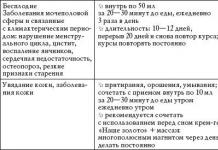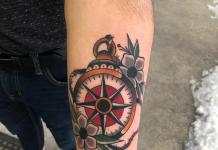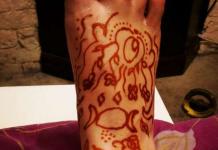A still from the film "The Space Suit and the Butterfly" (2007, dir. Julian Schnabel). Photo from 1tv.ru
Exactly five years ago, I was in a coma, from which I came out into a completely different life, and the life of my family also became completely different. Together we had a lot to understand, a lot to learn anew. Today I want to talk about common mistakes people with disabilities make.
Wall construction
This happens involuntarily, of course. But the relatives of a disabled person begin to build an invisible wall between their family and the rest of the world. Maybe they are trying to protect themselves. They may reject other people's help, be embarrassed to invite people into the house, withdraw into their grief - not realizing what pain they cause you. Moreover, such a wall separates the disabled person from the members of his own family, which makes him feel even more alone.
My heavy cross
At a certain point, I discovered that you can’t just live with me under the same roof, you can only “look after” me. Even when I stopped needing diapers, spoon-feeding, learned to walk again and began to do some housework, no other words were expressed about me. From the feeling that you are a heavy burden, a cross that your loved ones are now forced to drag through life, joy does not increase. Even if this is the case, even if your relative really needs constant care, try not to make him feel like someone's unbearable burden.
sit, I'm on my own
This is probably the most common mistake. When you are not trusted to peel potatoes or go down to the store. “I myself, I’m faster, sit down,” they say to the disabled person. What is left for him? Just stare at the TV.
That’s what the Tyumen doctors wrote to me in the IPR (individual rehabilitation program) in the column “sociocultural rehabilitation” - “watching TV programs is recommended”: - both laughter and sin, given that I don’t watch TV at all, precisely because of its ability stupefy, lull and kill the desire for any kind of activity.
This is how a terrible thing is born - "disabled thinking", when "I am a disabled person, everyone owes me, and let this world revolve around me." Needless to say, the universe lives according to its own laws.
By the way, no one has canceled the concept of “fine motor skills”. Household, even the smallest, things are very useful for its development.
If…
The reasoning that “it was necessary to do this in that situation, and in that situation” is probably correct, but, alas, fruitless. We do not live in the past. And now there is the main thing - a living person. Think about it, a third of strokes are fatal in the first month. And here is a survivor. That is, I. Is this not a reason for joy: alive! Yes, the ambulance arrived late, yes, the operation was performed a few days later, yes, sensible rehabilitation generally began years later. There is probably a chance that today I could run, jump and do somersaults. But the past cannot be returned. The main thing is that I have a real one.
Himself to blame
The search for someone to blame can lead to even more unpleasant consequences. Since the past can be vague, because of which the outlines of the search can be very unsteady, then the disabled person himself is here, and, therefore, all the blame for what happened can be blamed on him. It is very scary to hear the phrase: “And why did I invest so much in you!” You feel worthless, powerless, poisoning everything around.
A person with disabilities is far from always able to stand up for himself, especially immediately after the experience. And he can believe that yes, the true culprit of all the troubles that have fallen on his head is himself. He has more than enough time for such "fruitful" reflections and feeding a destructive sense of guilt.
This is scary, because the doors to the future close before a person, and he begins to live only in the past, constantly picking up his wound. This should not be allowed, so please be careful. Even if he is guilty himself (diving in the wrong place, suppose), he has already been punished enough.
Return to beautiful yesterday
Probably, this is done with the best of intentions, but ... The constant recollection of loved ones about how good it was "before ..." does not make the life of a disabled person better.
On the waves of their memory, relatives of a disabled person float to where there were diapers, vests, and today's disabled person was a rosy-cheeked baby who "everything was fine." He learned to read, ran to a music school, showed promise and was generally a child prodigy. Was. And here is the same advice as above. Get back to the "now" more often.
Return to a terrible yesterday
I will forever be grateful to my parents for what they did for me when I was between life and death (closer to the last option). But this, thank God, is in the past: resuscitation, mom's sleepovers on chairs, dad's walking lessons on crutches, fiddling with my feeding and breathing tubes. Terrible time. But why do they return there so often? “Do you remember how we flew home from St. Petersburg and they didn’t want to“ put you ”on the plane?”, “Remember how I slept on chairs for three months and fed you with a spoon?”, “And how we first got to the bus stop, And how did you rejoice? I remember. But I do not want to constantly return my thoughts to that terrible dream.
The psychologist wife explains: this is a trauma, it must be experienced. But for a disabled person, this is a much greater trauma. Try to tire him less with such memories.
“In front of you is a disabled person of such and such a group”
This is what my wife sometimes says (a psychologist, as I already said), for example, when someone in the subway wants to sit in a seat that I have already taken. Or when my rights are somehow infringed. At the same time, she knows perfectly well that I can stand if necessary. He also knows that there is no need to remind me once again that I am disabled. He even writes articles on the subject. And he also writes that the word "disabled" is generally quite offensive. But the unconscious desire to protect overpowers knowledge. You don't have to protect me. Nobody offends me!
"Go?"
Words in general are a terrible thing. For someone - a trifle, they said and forgot, but for a person with a disability - it hurts and hurts. Recently, a wheelchair user wrote to me in a letter: “The usual, it would seem at first glance, the phrase: “Well, let's go,” means a lot to a wheelchair user. I so want to hear those words! But no, they will definitely say: “Well, let's go?”
Check, check a hundred times what you say to a disabled person. Listen to yourself.
Dressed - okay
I did not pay attention to this for a long time, not before. But recently I realized how important it is for a person with disabilities to be neatly and, if possible, beautifully dressed, shaved, combed, etc. Even if he sits at home without getting out, even if there is no one to look at him.
Unfortunately, very often such people wear some kind of rags - and do not even pay attention to it, just like I did in my time. I had some awkward oversized jeans (for going out and for growing out), the same sneakers, the only old sweater. Everything else is homemade, you won’t look without tears and you won’t go out into the street in this. In such clothes you feel like a prisoner, imprisoned for life. He has no future, no prospects, he is locked in a cell and there will never be anything else. No wonder the prisoners are put on an ugly uniform. It doesn't just make escape more difficult, it's also a punishment—a moral one.
Buy your loved one normal clothes - comfortable and even fashionable. You will see that this is important to him.
Cheese or sausage?
There is much less freedom in the life of a disabled person than in other people. Including freedom of choice. He lives according to a routine, like Rain Man, and eventually gets used to it. Give him the opportunity to choose at least something. The breakfast menu, the style of the jacket you will buy him, the color of the wallpaper in his room if you are going to do some renovations. When they finally started asking me about something, I realized that I had completely forgotten how to choose. Now I'm studying and I like it.

Let's sneeze!
“For every sneeze you don’t get well,” says the saying. No matter how. Relatives find the strength and time for this. As soon as I clear my throat, I immediately hear a hail of questions about my health. But from a simple sore throat to a hospital bed is a long way. How would I convey this idea to my loved ones: do not worry in vain!
“A normal person can sneeze as much as you like,” they will tell me, “but you must take into account ... etc. and so on." It's time to howl from these lectures. After all, we want nothing more than to be “normal.”
You should not constantly remind your loved one about health - there are much more interesting topics. In addition, there is a danger that, tired of being constantly pulled, he will simply hide his well-being from you, and this can really be fraught.
Daughters-mothers
“Don’t they pinch our shoes? Were we cold outside? Is the porridge hot? Ordinary people hear these questions only in early childhood. We are doomed to answer them always - at 30, and 40, and 50 years old ... Even for the closest people, a disabled person is often not the same person as they are, just with physical characteristics, but a baby. But how do you not want to fall into childhood, to become a living doll!
Likbez
Not all relatives of people with disabilities understand the intricacies of rehabilitation, although it is certainly necessary to go through the necessary educational program, because this process must be continuous. But often, especially in the provinces, your family members rehabilitate you solely on the basis of their own ideas about illness and health. My father is sure that the best rehabilitation for a stroke patient is a bathhouse and strength training equipment. My mother is sure that the paresis will pass as soon as the muscles get stronger and every time she meets, she tries to urgently fatten me. We see each other infrequently, she lives in another city. She buys more and more new products, not noticing that they no longer fit in the refrigerator, and even more so in my stomach. She gets offended when I try to resist: “If you don’t eat, where will the strength come from to recover?” Unfortunately, from such a “rehabilitation” health does not increase - only extra pounds, which I absolutely do not need.
Okayushki
Mom can be forgiven for everything, but what sometimes really jars on is from simulated cheerfulness.
In the summer I was in the hospital and friends came to my neighbor - a former taxi driver. “Nothing, what our years, at most in a year we will ride together again! And we will celebrate the New Year for real, not with lemonade.” He was silent and only sighed softly, realizing that he would never get behind the wheel himself, and drinking would simply kill him.
And my school friend found these words of support: “It's not so bad to be disabled. You don’t need to work, but you don’t need anything, mind your own business, surf the Internet, the state feeds and waters you.” Positive thinking in action! I offered to change places...
stop sign
Well, the scariest part. When loved ones refuse to see in you - the way you have become - the same person as you were before. And most importantly, they do not see your future. And, the worst thing, if you believe in this nonsense yourself. “Nonsense,” I say, because I went through it myself. The future is always there. Even if they say with skepticism: “The future? In sick?! When a healthy person is not sure about the future!” This opens up a wide scope for discussion, but that's a completely different story ...

I am not at all sure that these points will eliminate misunderstandings in the family. Moreover, each disabled person will have their own list of do's and don'ts. But I have no doubt about one thing, if there is love and respect, this is the main thing. However, the presence / absence of love is a special topic that concerns not only disabled people ...
A quarrel with your husband means his trust and respect for you.
Such a dream can also portend some kind of trouble outside the family.
If a wife dreams of a very affectionate husband, problems may arise in the family.
If a woman dreams that her husband left her for no apparent reason - in reality to a short-term cooling of relations, which, in any case, will be replaced by mutual attraction and consent.
If the husband dreamed of being sick or tired, then this is the illness of one of the relatives.
If you see your husband cheerful and cheerful, life will open up brilliant prospects for you.
There will be material well-being in the house.
If you dreamed that your husband was in love with another woman, not everything is safe in the family.
It is possible that your relationship is too monotonous and something needs to be changed in them.
If a married woman dreamed that she fell in love with another man, she is lonely in the family or does not receive satisfaction from intimate relationships with her husband.
If a girl dreamed that she got married, she should pay more attention to her appearance and think about her dignity.
If you dreamed that your husband was leaving, but, leaving home, he seemed to be taller - the dream portends that loved ones will be against your marriage and you will have to fight for your happiness.
If you dreamed of a scandal in which not only your husband, but also another woman participates, this is a divorce or significant loss.
If you dreamed that your husband was killed as a result of a scandal, this is a very bad dream.
If a husband dreams that he is fighting with her, peace will come in the family.
If the wife caresses her husband - to profit.
Interpretation of dreams from the Dream Interpretation of ShereminskayaSubscribe to the channel Dream Interpretation!
Question: Assalamu alaikum! I wanted to know your opinion and get advice on one issue that has been tormenting me for a long time. More than ten years ago, we had an accident, after which my husband became a disabled person of the 1st group. He was paralyzed, his legs and pelvic organs do not function. He is now in a wheelchair. I have been by his side all this time. But the only thing as a woman lately I began to feel bad. I suffered for many years, but nature takes its toll apparently. My husband is somehow trying to satisfy me, but, of course, this is not the same, although I always pretend not to offend him. I can’t ask him for a divorce, it seems to me that it will completely kill him. It's not easy for him either. To change him is a sin. But these thoughts have been on my mind lately. What should I do? I'm not old yet, I'm not even forty. (Russia)
Answer:
In the name of the Gracious and Merciful Allah!
Assalamu alaikum wa rahmatullahi wa barakatuh!
May Allah reward you for your patience and concern for your husband's feelings!
The fact that you experience bodily desires is natural, such is human nature, and you cannot be blamed in any way for having them.
You make this sacrifice for the sake of Allah by continuing to live with your spouse, despite the fact that it is difficult for you. Remember that Allah rewards you for every moment of difficulty that you experience for the sake of His pleasure. The following words of the Prophet (sallallahu alayhi wa sallam) are transmitted in the hadith:
ما يصيب المسلم، من نصب ولا وصب، ولا هم ولا حزن ولا أذى ولا غم، حتى الشوكة يشاكها، إلا كفر الله بها من خطاياه
If a Muslim experiences at least some difficulty, illness, misfortune, sadness, harm or anxiety, even if it is as insignificant as a prick with a thorn, this becomes an atonement for his sins before Allah. (Bukhari. Sahih. - No. 5461, narrated by Abu Hureyra)
Remember also that the greater the sacrifice, the greater will be the reward from Allah:
المشاهدة بقدر المجاهدة
The reward is commensurate with the effort.
It is clear that your position is difficult. Therefore, we recommend that you stock up on patience and hope for a reward from Allah. Allah will reward you for your sacrifices in ways that are incomparable to worldly pleasures. For your sacrifice, Allah will reward you with the sweetness of faith, His closeness and love, which will make worship (ibadat) desirable for you. You will find comfort, joy and peace in prayer, reading the Qur'an, prayers and remembrance of Allah, and at the end of your worldly life you will have an unimaginable reward and pleasure awaiting you in the next world.
In your situation, there are certain ways that can ease the burden of bodily urges a little for you. Given your circumstances, these methods are permitted by Islam.
a) Spouses are allowed to masturbate each other. You can take advantage of this relief in your situation.
b) Because of your husband's position, he will be allowed to use sex toys and devices to ensure your satisfaction.
Note. In principle, the inability of a husband to satisfy his wife's bodily needs due to impotence caused by illness or injury is sufficient reason for a woman to seek a divorce if her intention is to protect herself from vice by subsequently marrying a decent Muslim who can take care of her physical and other needs. After all, one of the main reasons for nikah is to protect against extramarital affairs.
(The said norms have their own details, for which one should refer to the competent Ulama if the personal situation requires it.)
And Allah knows best.
Wassalam.
Mufti Suhail Tarmahomed
Fatwa Center (Seattle, USA)
Department of Fatwas of the Council of Alims (KwaZulu-Natal, South Africa)
Q624
Who paves the roads of life and what brings us to their crossroads? Fate, God's providence, chance ... Luryana and Dmitry were not supposed to meet, but got married. They thought about having a baby, but it turned out to be twins. Alina was born healthy, and Arthur suffocated, and he had little chance of getting out. The child survived, but the husband at the construction site fell down the stairs and broke his leg. So much so that they thought to amputate it. And here you are: one adult disabled person, the other has just been born and is sick all the time, crying, and over time it turns out that he is losing his hearing. Hospitals, doctors, strength, money, patience... What kind of test is this, what kind of pain? And where to find the strength to overcome everything and fix it? We are talking about this with Luryana and Dmitry Alfimov.
Luryana: We had an interesting history, such as how we met at all. I worked at that time in the North, in Urengoy, as an accountant. In general, I was born in the Oryol region, in a village where there are a lot of Dagestanis. She grew up, studied as an accountant in Karachay-Cherkessia. I worked a little at the base, which sold ice cream, wrote out invoices there. Then she got a job in greenhouses - tomatoes there, cucumbers. The work is hard, it's hot, especially in summer. And my aunt says to me: “Well, why are you roasting there, let me arrange you for the North?” She bought me boots, I took boots and went to this North as an accountant. It was fried, and then it began to freeze.
So. While I was still studying in Cherkessk, I had a best friend. I left, she got married, and we got lost. Twelve years have passed. And here I am freezing in the North, sitting in Odnoklassniki and suddenly I find her. And she writes to me: come to visit me soon in Kislovodsk. And I suddenly got up and went. So much joy! Hugs ... And then she says: "Now one guy will come to me, I want to introduce him to my sister-in-law." OK then. And suddenly this guy, Dima, comes. All so dirty, in shorts, in paint, plaster - he was a house painter. Well, they said hello, while I went to wash the dishes, and they went to meet my sister-in-law. They come back, I look - he is all dressed up already, in a shirt, ironed. Well, that's how it happened - they thought to bring him to another, but I ended up in her place.
Dmitriy: I lived here, in Stavropol, I was married. He lived in marriage for eight years, but there were no children, they divorced. And then my friends call me and say: “Well, why are you sitting there alone, move to us in Kislovodsk, we will find you a job here, introduce you to a good girl.” I rented my apartment and left, got a job. And somehow they decided to introduce me to a girl, I stopped by for a visit, I look - there is such beauty. I think: wow! Then she went to her place in the North on a shift, we corresponded, called each other every day. And then we got married and she moved in with me.
They began to live, children were born. There was not one, and then there were two at once. Both joy and tragedy at the same time. They were born, and I broke my leg. Yes, so specifically that it crushed the entire lower part. At the construction site, the ladder rolled, the leg slipped - and it turned out all over. They brought me to the hospital in Kislovodsk, looked at the picture and said: no, no, we don’t make such fractures, we’ll just cut it off for you - that’s all. Well, I have a cousin - a traumatologist in Pyatigorsk. They took me there in an ambulance. The first operation went on for four hours, the leg was assembled like a mosaic. Plates, screws. The joint was collected in parts. In total, I have had thirteen surgeries to date. Because the leg did not grow together properly, and the bones began to rot because of the knitting needles. So I nursed my children mostly in a horizontal position. Or crawled up to the crib on his knees and rocked them - he himself could not really walk, like a child.
Luryana: In general, when I found out that there would be twins, I was shocked. My pregnancy was difficult - because of the kidneys. I remember riding the train from the watch, I felt bad. Temperature, fever. Somehow I got to Tobolsk, where my aunt lives. They took me to the hospital, and let's do an ultrasound. And they say: oh! Congratulations, you have two! How?! My eyes were five rubles each.

They were hard to wear. I was in storage. And then I was visiting the same friend in Kislovodsk, and my water broke. They called an ambulance. My husband arrived on crutches. A friend later told me that he repaired all the locks and all the doors in her house from nerves, did all her lessons with her children - she didn’t know what to do with herself.
I had difficult births, premature babies. Arthur was given only one point. Alina immediately screamed, but he did not. No guarantees were given to him, there were very few chances. He was on artificial lung ventilation, covered in hematomas. I expressed milk, carried it to the intensive care unit. We spent a month and a half there.
Then we were discharged. Arthur was like a marble: pale all over, all the veins are visible. But at least we got through! And just like that, little by little, little by little, he began to grow. Grows. And Alina is growing. Here they are two years old. She is already talking, and he is something quite a bit. And I notice that I ask him: show me your eyes, show me your nose - but he does not seem to understand. Or running around, I tell him: Arthur, don't. And he responds only the fifth time. Let's go to the neurologist. I didn’t think it was a hearing problem, I didn’t even have any thoughts, because sometimes music plays and he dances. Clap your hands, he hears. A neurologist took a look and sent us to an audiologist. And there we were diagnosed with hearing loss of the second and third degrees.
Well, how to treat it? They did procedures for him, took him to learn to speak. They began to look for a specialized kindergarten. Found only in Stavropol, moved here for this. He slowly began to speak, and then he had - bam! - angina. Yes, so strong that I myself was frightened. Somehow he was cured with antibiotics, I see - and he began to hear worse. The audiologist looked at us and now put the fourth degree of hearing loss.
The devices that we had were already at the limit. Twisted to the maximum volume, and then he asked them all the time: “Mom, what? How did you say? And so, in order to buy new, modern devices, we had to turn to Rusfond for help. Arthur now hears so well that he even began to argue and reason. For example, I ask him: “Do you like these devices?” - "No". - "Why not?" “If I go into that room over there, I won’t hear you there!” - “Arthur, if I go to that room, I won’t hear anything there myself ...”
My children and my husband often laugh. I don't think there's anything bad to think about. Love and fun - that's the only thing that helps a person. Everything is good except hunger. We rejoice in everything that life gives. So, she rejoices when she gives us something.


































